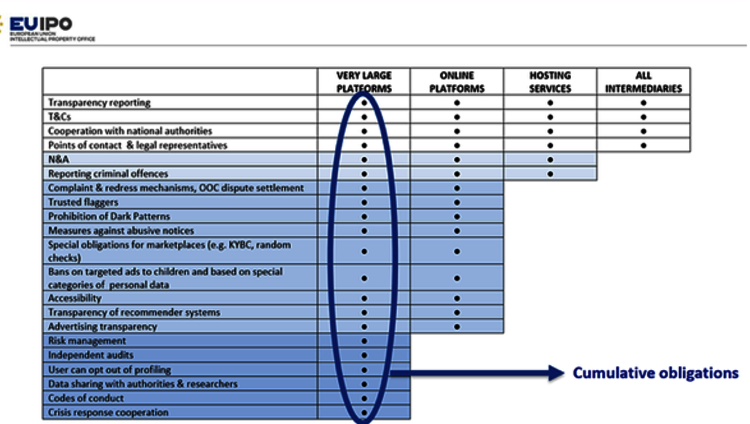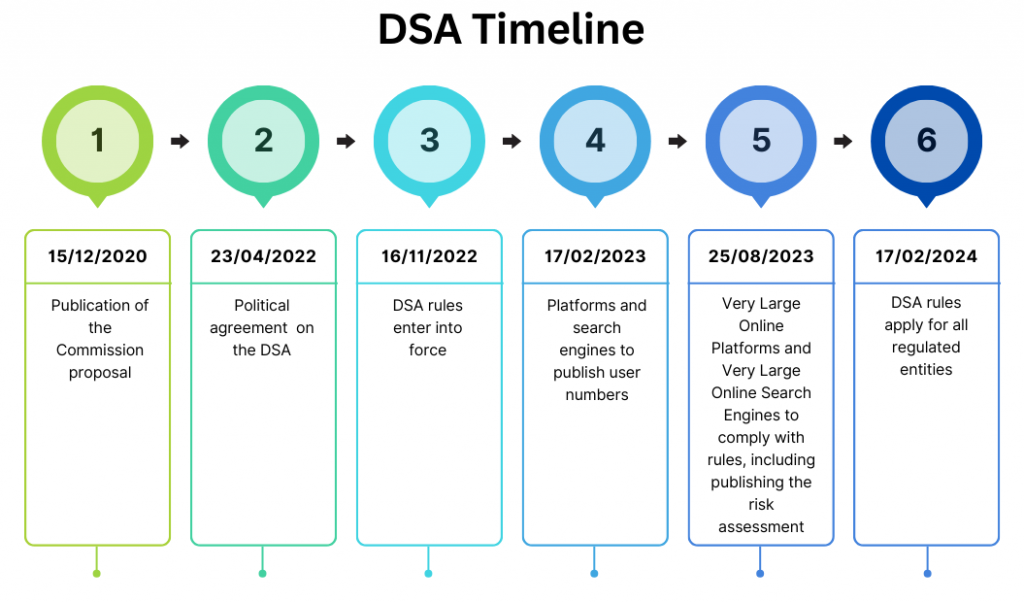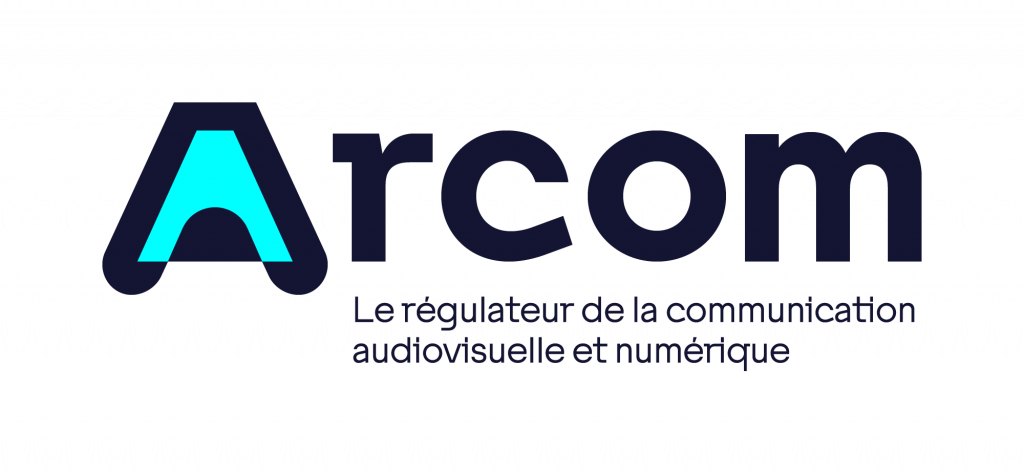Digital Services Act (DSA)
In this blog post, we’ll take a look at what the Digital Services Act is and what it means.
On August 25, the Digital Services Act came into force for very large online platforms and very large search engines.
On February 17, 2024, this regulation will apply to the rest of the platforms and online intermediaries offering their services on European soil.
In this blog post, we’ll take a look at what the Digital Services Act is and what it means.
The principle of the Digital Services Act
The DSA Regulation was adopted under the French Presidency of the Council of the European Union.
Its principle is quite simple: what is illegal offline must also be illegal online.
This ranges from simple disinformation, to child pornography, to the sale of counterfeit goods.
Digital Services Act therefore aims to reduce the dissemination and propagation of illegal content on the Internet, but also to improve relations and transparency between users and online platforms.
The objectives of the DSA regulation
The Digital Services Act has several objectives :
- Combat the distribution of illicit and illegal content
- Reduce online misinformation
- Put an end to cyber-bullying
- Ban advertising aimed at minors
- Combat content that undermines public safety, internal security and democratic processes
- Enforce the Charter of Fundamental Rights of the European Union
What measures do platforms need to take?
Online platforms must, or will have to, put in place a whole set of new measures including :
- Create a reporting system for illegal content
- Suspend accounts publishing illegal content
- Prohibit advertising targeting for minors
- Analyze the risks associated with their services in terms of illegal content and implement a solution to remedy the situation.
- Inform users of any significant changes to the general conditions
- Formulate the general conditions in a simple, intelligible, easily accessible and unambiguous manner
- Indicate the recourse and repair mechanisms for the user
- Guarantee a high level of protection of user privacy, including particular attention to minors
- Prepare transparency reports on complaint and moderation and complaints management systems
For very large online platforms and very large search engines, the measures will be stricter and more controlled.

Who is affected by the Digital Services Act and when?
The application of the DSA regulation concerns “online intermediary service providers”.
In this term, we actually find several types of sites and online services including:
- Hosts
- Search engines
- Social networks
- Travel and accommodation platforms and sites
- E-commerce/merchant sites
- Marketplaces
- Cloud platforms
The deployment of this new European regulation is being done in two parts.
August 25, 2023
On August 25, 2023, all online platforms and search engines with at least 45 million monthly active users in the European Union must apply the Digital Services Act.
Here are the platforms currently concerned:
- AliExpress
- Amazon Store
- AppStore
- Bing
- Booking
- Google Maps
- Google Play
- Search by Google
- Google Shopping
- Snapchat
- TikTok
- Wikipedia
- X (previously Twitter)
- YouTube
- Zalando
February 17, 2024
On February 17, 2024, the DSA regulation will be applied to all online intermediaries and all platforms offering their services (goods, content, or services) on the European market.
Discover the timeline on the DSA regulation below.

What are the penalties in the event of non-compliance with the Digital Services Act (DSA) regulations?
Each member of the European Union must appoint a “digital services coordinator”.
The latter will be responsible for monitoring compliance with the DSA regulation in their country and for managing complaints against online platforms and intermediaries.
In France, Arcom, the regulatory authority for audiovisual and digital communication, occupies this position.

The very large online platforms and the very large search engines will, for their part, be monitored by the European Commission itself.
In the event of a violation of the DSA regulation, a fine will be imposed on the accused platform, in an amount of up to 6% of its annual global turnover during the previous financial year.
In the event of a repeated and aggravated violation or breach by a platform, the latter will be temporarily banned by a temporary measure restricting access to the service on European territory.
To find out more about this law, we invite you to consult it here.
